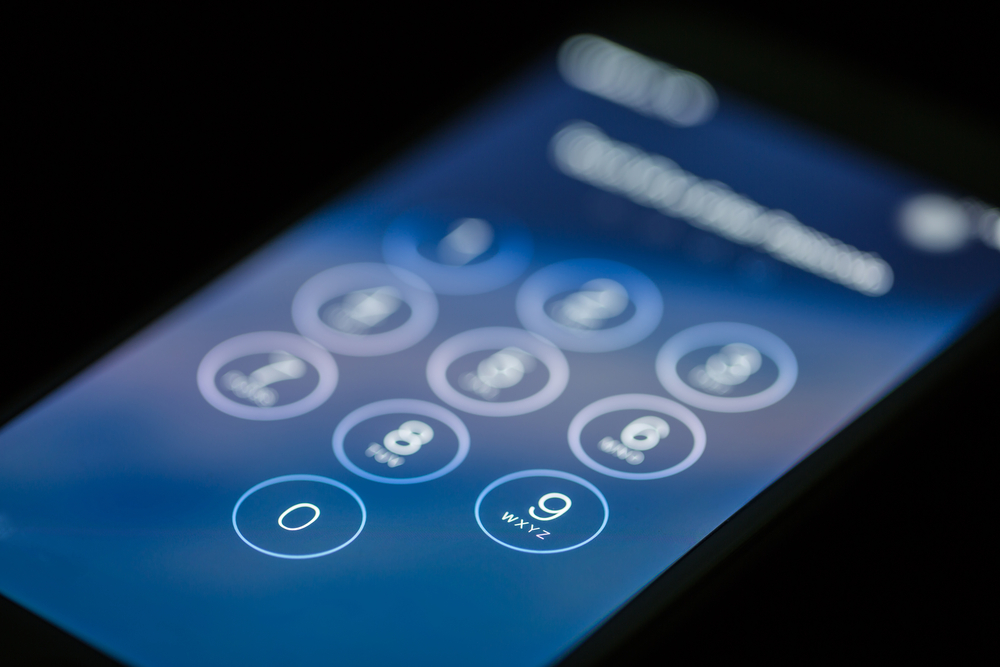By now nearly everyone has heard that the FBI, supported by the Department of Justice and the White House, is trying to force Apple Inc. to allow them to unlock an iPhone used by Syed Farook — one of the San Bernardino shooters.
If the government succeeds, we will all take a catastrophic step backward in the struggle for personal privacy. The FBI says it wants to do it “just this once.” That’s as believable as a raging alcoholic promising one last drink. If the FBI gets what it wants, the cascade of consequences will be rapid, brutal and irreversible.
Adding insult to injury, the government doesn’t really need what’s on the phone. It’s just taking advantage of public fear of “terrorism” to ram through the most destructive invasion of our digital privacy yet. It’s a step that will cripple the American IT industry … and leave all of us far less safe than we are now.
One Party Is Being Honest … and It’s Not the Government
Ever since the launch of iOS 9, Apple iPhones have been truly unhackable, as long as the user chooses a passcode to protect the device. The passcode acts as an encryption key, and without it, even Apple can’t see inside the phone. To prevent would-be hackers from just guessing codes, iOS 9 slows down with each failed attempt, rendering the phone useless after 10 tries.
Therefore, the FBI wants Apple to provide it with a version of iOS that would allow them to test passcodes until they find the one used by the shooter — otherwise known as a “brute force” attack. Such an iOS could be used on any iPhone. Once such an iOS exists, you can be certain that it will leak, threatening all iPhones.
Laughably, the FBI says Apple’s refusal to cooperate isn’t principled, but rather a marketing ploy to appeal to privacy-minded “purists” like myself (Acknowledgement: I have an iPhone). But the crocodile tears here are really the FBI’s. It’s the government who is deliberately lying about its motives, not Apple, which appears more and more to be a truly principled outfit.
The phone in question almost certainly contains nothing of interest to this investigation. It was a work phone issued by San Bernardino County, Farook’s employer. It was the only phone Farook and his wife owned that they didn’t destroy before they were killed. It was providing backups to the iCloud until just before the killings, and the FBI was able to get those backups easily. If Farook contacted any co-conspirators by smartphone, he certainly didn’t use this one. And if he called or texted anyone on it whilst the shootings were in progress, the FBI can subpoena those details under existing case law from the county’s cell service provider.
If Encryption Is Illegal, Only Bad Guys Will Have Encryption
The only plausible explanation is that the government is deliberately using the San Bernardino shootings to advance its relentless quest for access to all information, public and private. It is waving the bloody shirt of terrorism to establish a precedent it has long sought — that the government is entitled to a key to every locked door in America, physical or virtual.
The set-up involves a classic bait and switch. You may recall that President Obama has said several times that he personally favors strong encryption. He’s subtly created an image that makes him look reasonable, even civil liberty minded, compared to hawks such as FBI Director James Comey. Now with this highly public and stressful case at stake, however, the White House says it “stands fully behind” the FBI. After all, this is terrorism!
Say Goodbye to Privacy
Of course, if the FBI gets its way, the next perpetrator of some outrage won’t just leave his phone behind. He’ll destroy it — or simply use a custom device like the Blackphone, which is produced by a Swiss company that would rather cease operations than compromise its customers.
That will mean one simple thing: Henceforth, only non-criminals will be vulnerable to security breaches. And you can be certain that this “one use only” version of iOS will be leaked far and wide, and eventually come into the hands of hackers, foreign governments and anyone else who wants to violate privacy with impunity.
Ironically, the ultra-secure Blackphone is the preferred security device of the U.S. military and intelligence services. After all, no matter how much they may know about us, we can’t know anything about them.
If Apple loses this case, I predict that Blackphone sales will skyrocket. I know I’ll be getting one.
In the meantime, if you’re an iPhone user, go to “Settings,” click “Touch ID and Passcode,” enter your current code, then touch “Change Passcode.” Enter your current passcode again, then touch “Passcode Options.” Choose “Custom Alphanumeric Passcode” and enter a new passcode at least 11 letters/digits long (and write it down and store it somewhere safe). With that, even if the FBI gets what it says it wants, it will not be able to get into our iPhones … at least for now.
My question for you today is, “Where do you stand?” Is the government right, and Apple should unlock this iPhone? Is Apple right, and the FBI should back down and find another route for its investigation? Weigh in with your comments by emailing me at: sovereignconfidential@sovereignsociety.com.
Kind regards,
Ted Bauman
Offshore and Asset Protection Editor
